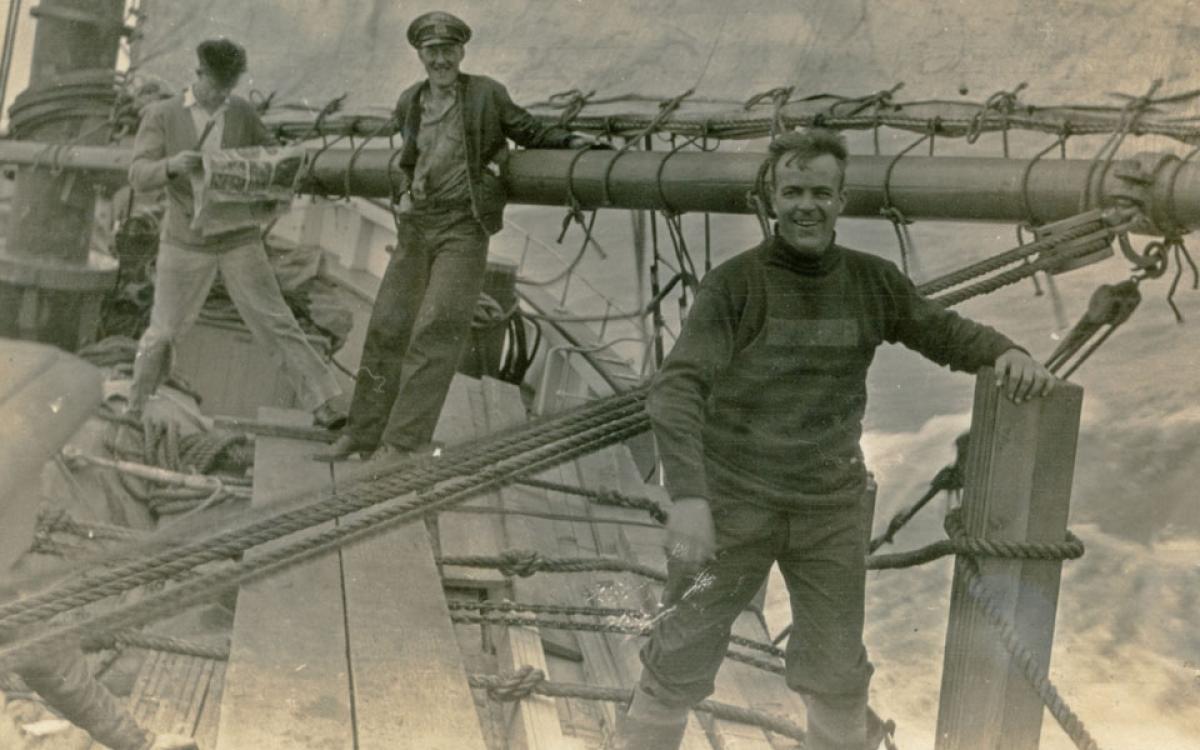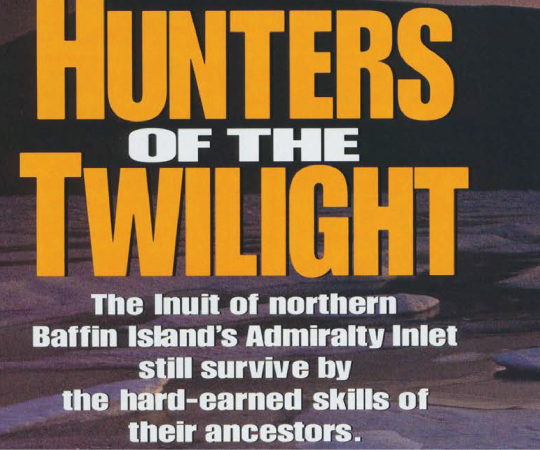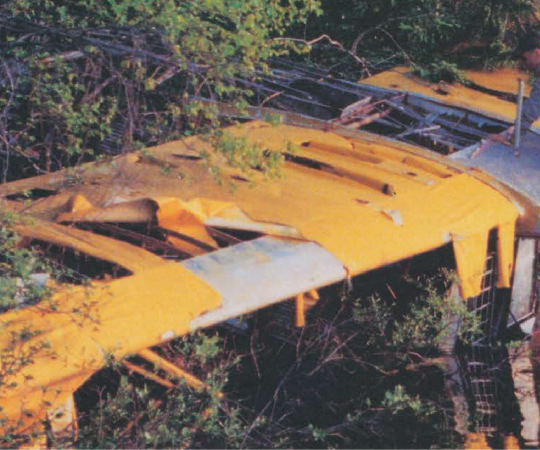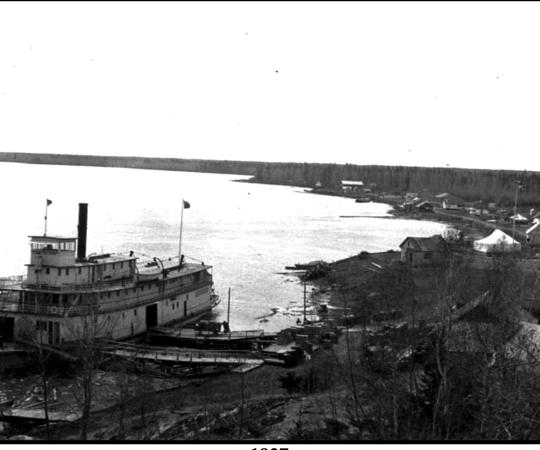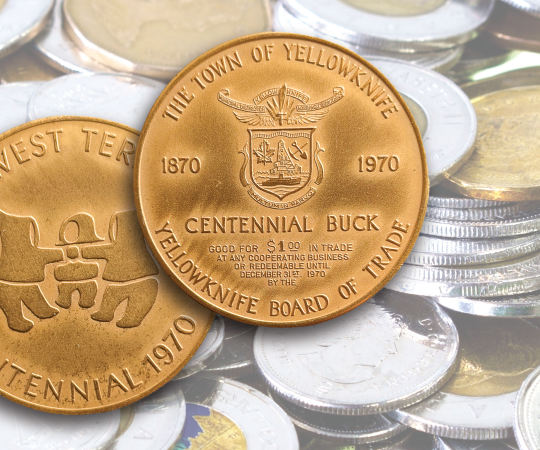When Roald Amundsen’s beached ship, the Maud, was exhumed and shipped back to its native Norway last year, many told tales of Amundsen’s exploits, being the first to successfully navigate the Northwest Passage. No one mentioned the ship’s compasses were filled with alcohol, and that in the 1930s two Mounties snuck into the stranded boat and drained enough booze for a few drunken nights. And when the RCMP finally tracked down the legendary Mad Trapper and shot him dead, most people called them heroes—few called it “the biggest goddamn bungle in Mountie history.”

But that was Bill White. During his four years with the RCMP in Cambridge Bay in the 1930s, his shoulders brushed with history—like when he met an Inuk who used a button from the uniform of one of Franklin’s lost men as a topper on his pipe—as he took his white contemporaries down a few pegs for pretending their Northern dalliances made them heroes.
While researching Cambridge Bay’s history, I came across a book called Mountie in Mukluks: The Arctic Adventures of Bill White. I flipped through it looking for information on the community’s geography and, while I didn’t find anything on that, I found myself still reading it on a library bench two hours later. Written in the first person, Bill’s brash voice comes through, full of bravado and frank talk. His descriptions of building and living in igluit while on patrol makes them seem as cozy as a cottage. His admiration for the Inuit and their way of life is tinged throughout his description of their techniques for living on the land. His elaborate pranks on fellow RCMP are laid out with a wink. His accounts of “rhubarbs” (probably the first and last time you’ll hear that slang for fistfights) are hedged by the ridiculousness of why the fights even started. And his descriptions of the lunatics and miscreants the place seemed to attract made me think of a few folks still around the North.
It is a weird, fascinating and absorbing book—and all supposedly true.
Patrick White, a reporter for The Globe and Mail who’s covered the North and bears no relation to Bill, wrote it in 2004. When asked about the book, the first thing he tells me is he’d write the whole thing differently today.
Patrick had come into possession of a collection of tapes of Bill telling these stories. “As a result, Bill’s voice was kind of tumbling around in my head and I had a very short deadline. I thought it would be interesting to do just pretty much an oral history and have Bill’s voice come out on the page,” he says. “But if I were to do it again, I would not write it in his voice. I would—and this is assuming I would have time—treat him as a valuable historical character and write about him as a journalist or historian would.” That is, third person in historical context—a serious book with humourous moments, as compared to a humourous book (inherent in the narrator’s voice) with serious moments.
But to do so would be to polish an imperfect gem and make it lesser. (Still, the book is hard to classify. When it was first released, Patrick says booksellers and libraries didn’t really know where it belonged. Is it a memoir? Is it fiction, even? Or a history?)
There are other reasons Patrick might have done things differently. Bill himself was quick to criticize his contemporaries who came back from brief stints in the North to lionize themselves in print as heroes and explorers, and talked as if they knew the Inuit and life in the North better than the Inuit themselves. “There’s a saying: you spend a day in the Arctic, you’ve got a newspaper article; a week, you’ve got a magazine article; you spend a month, you’re entitled to write an entire book once you get back,” says Patrick, based in Toronto, paraphrasing Arctic legend, Ernie Lyall.
It’s a criticism he says he’s had laid against him based on his own Northern reporting. In 2011, Patrick was “upbraided for about half an hour” in Nunavut’s legislature in a speech by then-MLA Tagak Curley. The reason? A 7,300-word feature Patrick wrote in The Globe and Mail called “The trials of Nunavut: Lament for an Arctic nation.” Curley took issue with how Patrick characterized the territory’s problems with suicide, and with the printing of what Curley had said in an interview that seemed to minimize the suicide problem. Some people started calling for Curley to resign. The next thing Patrick knew, his name was popping up in Hansard in a fiery speech. “Some of it was wrong and some of it I took to heart,” he says. “Now when I go North to write, I do it in a different and much more respectful way than I used to.”
If Patrick were to write Mountie in Mukluks again, he’d talk more to the families of the Inuit Bill mentioned in his stories: Mahik, his best friend and often accomplice in misadventures; Hukonga, Mahik’s wife, for whom everyone seemed to have eyes; Katapko, whose predictions of future events Bill could never quite explain; and the offspring of Charlie Klengenberg, a charismatic character who multiple sources (including Arctic historian Kenn Harper) link with several unexplained deaths. (“For such a bad bastard Klinky sure had nice kids,” said Bill.)
But with little time to hand in a draft, Patrick had to rely on his trove of tapes and the few interviews with Bill’s family and Northerners he could manage to fit in.
Bill had been a neighbour of Patrick’s family when Patrick was a boy, and Patrick’s father had recorded Bill’s stories with the intent of writing the book himself. Instead, Patrick’s father wrote a story about Bill’s third act—as a hard-knuckle union boss on the West Coast at a time when workers didn’t have too many rights and unions didn’t have too many friends. Listening to those tapes, Bill’s charming, curse word-riddled drawl stuck in his head. And it’s still there. “When I’m having a bad day at work, he often comes to mind, and I always think of it in Bill White’s voice.” He mimics Bill’s deep, gravelly drawl: “‘Don’t let the bastards get you down.’”
For the rest of us, who didn’t have the distinct pleasure of meeting Bill White, Mountie in Mukluks remains the closest you’ll get to having a beer with the old guy and hearing some fantastic yarns.

